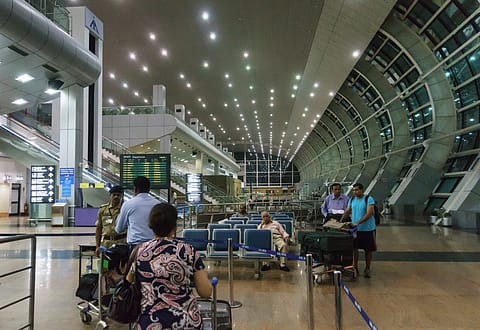Signs of green shoots in air travel?
Data by the Directorate General of Civil Aviation showed that more domestic travellers took to the skies last month, as compared to August. Although, traffic is still down on an yearly basis.

There is hope and signs of green shoots for the Indian aviation industry: domestic passenger traffic in September was up 39% over the preceding month. Data released by the Directorate General of Civil Aviation showed that 3.94 million domestic travellers took to the skies last month, as against 2.83 million in August. The figures for July and June were 2.1 million and 1.98 million, respectively. However, domestic passenger traffic is nowhere near the pre-Covid-19 levels.
Domestic air travel resumed operations on May 25, following a two-month halt due to the country-wide lockdown on account of the Covid-19 pandemic. Since then, the recovery in air travel has been gradual and is being closely monitored by the Ministry of Civil Aviation. To begin with, a controlled re-opening of air travel was put in place, with the government allowing airlines to operate only up to 60% of their pre-Covid-19 schedules.
“In reality airlines are flying around 50% of their full schedule as that is all that they can cover operating costs on, given the much reduced demand,” said Sanjiv Kapoor, the former chief operations officer of SpiceJet, and former chief strategy and commercial officer of Vistara, in an earlier interview to Fortune India. “There is no light yet at the end of the tunnel,” added Kapoor.
As compared to the previous year, domestic passenger traffic in September was down by a whopping 65.82%. For the January to September period, traffic was down by 58.39%.
At end of the September quarter, IndiGo continued its unassailable dominance with a market share of 58.8%. SpiceJet, which has seen an erosion of its net worth, had a market share of 14.1% followed by flag carrier Air India (9.5%). AirAsia India and Vistara, both owned by the Tata Group, had a market share of 6.3% and 5.5%, respectively.
Globally, the aviation industry has taken a massive hit on account of countries shutting their borders and restricting international air travel to curtail the spread of Covid-19. While the Airports Council International (ACI) World projects that the airport industry will suffer a loss of $104.5 billion, the International Air Transport Association (IATA) estimates that airline revenues will be down by at least 50%.
“The Covid-19 pandemic remains an existential crisis, and airports, airlines, and their commercial partners need direct and swift financial assistance to protect essential operations and jobs,” ACI World director general Luis Felipe de Oliveira said in a media release on Tuesday. “But such assistance is only one piece of the puzzle as the industry restarts and prepares to sustain continuing operations focused on the health and welfare of travellers, staff, and the public.”
Recommended Stories
ACI and IATA, added Oliveira, are aligned in calling for urgent government action to introduce widespread and coordinated testing of passengers so that quarantine requirements can be removed. “Without this action, it is not an exaggeration that the industry is facing collapse.”
Calling for similar actions to be implemented across Indian airports, Kapoor had said, “If a rapid test can be deployed, and only those who test negative are allowed to travel, safety is increased and quarantine requirements can also be done away with.”